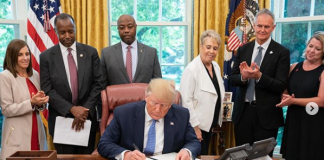November last year marked the end of Mugabe’s tenure. Retiring at 94 years Mugabe was one of the longest-serving and oldest African leaders. During his 37 years as Zimbabwe’s president, there was a marked drop in the economy, unemployment, currency crisis, high inflation, and rise in poverty levels. The recently concluded July election in which Zanu- Pf leader Emmerson Mnangagwa was declared the winner is anticipated to bring changes in Zimbabwe.
Like many African countries, in Zimbabwe there was an unequal distribution of land in the colonial period. After gaining independence the inequality was highly disputed and politicized. To ensure smooth redistribution, the British government reached an agreement with the Zimbabwean government to initiate a fair market due process idea, known as willing seller; willing buyer, in land redistribution. The UK also offered financial assistance to support the black Zimbabweans resettlement policy. However, for close to two decades that the policy was in place, it proved to be too slow and unsuccessful. Impatiently, Zimbabwean government came up with a referendum campaign that would give them the power to forcefully take land from the whites without compensating them,with the claim to redistribute to the black Zimbabweans. The referendum was unsuccessful, and plans to violently evict the white farmers was popular with support from Mugabe’s government.
During his era reforms in many sectors were witnessed especially in land. One of such is the Fast Track Land Reform Programme [FTLRP] of 2001 that saw white settlers forcefully being evicted from their commercially owned land with no compensation. This policy was meant to address the racial land prejudices and historical injustices that have been in place since the pre-colonial error. The whites were favored, protected and given the most fertile land forcing the black farmers to live in deplorable conditions working as casual laborers. A controversial policy that signaled relief to the oppressed Zimbabweans whose land has been seized, gathered praises from his supporters but attracted criticism from South African Development Community [SADC] and the international community.
Unfortunately, most of the reclaimed land ended up being with the political ruling class leaving Zimbabweans poorer. Given that the white farmers were the primary contributors to the agricultural and export sector, the Zimbabwe’s economy got the hit resulting into food crisis and spike in unemployment levels. White farmers’ exit from farms led to increase in food importation.
Say what you like about tobacco, but it was this industry that boosted Zimbabwe’s economy and now somehow nurturing its slow come back. Truth, the industry itself was equally hit by Mugabe’s land reform, it has played a great role in the revival of the country’s economy. With the aid of global tobacco industries, the black Zimbabweans are actively involved in tobacco farming thus increasing its production and exportation.
While the newly declared presidents Mnangagwa Emmerson does not deny the land reforms has greatly contributed to declining economy over the years he is quick to admit that Zimbabwean government is not going to reverse Mugabe’s land reforms. However, he gave the reassurance that his government is committed to ensuring the safety of white minority farmers is guaranteed and that the chaotic eviction in the past does not happen again. As usual in African elections, Emmerson’s recent win is still being challenged by the opposition. At the mercy of fate, circumstance, and a new government, Zimbabweans are hopeful that the economy will recover.

